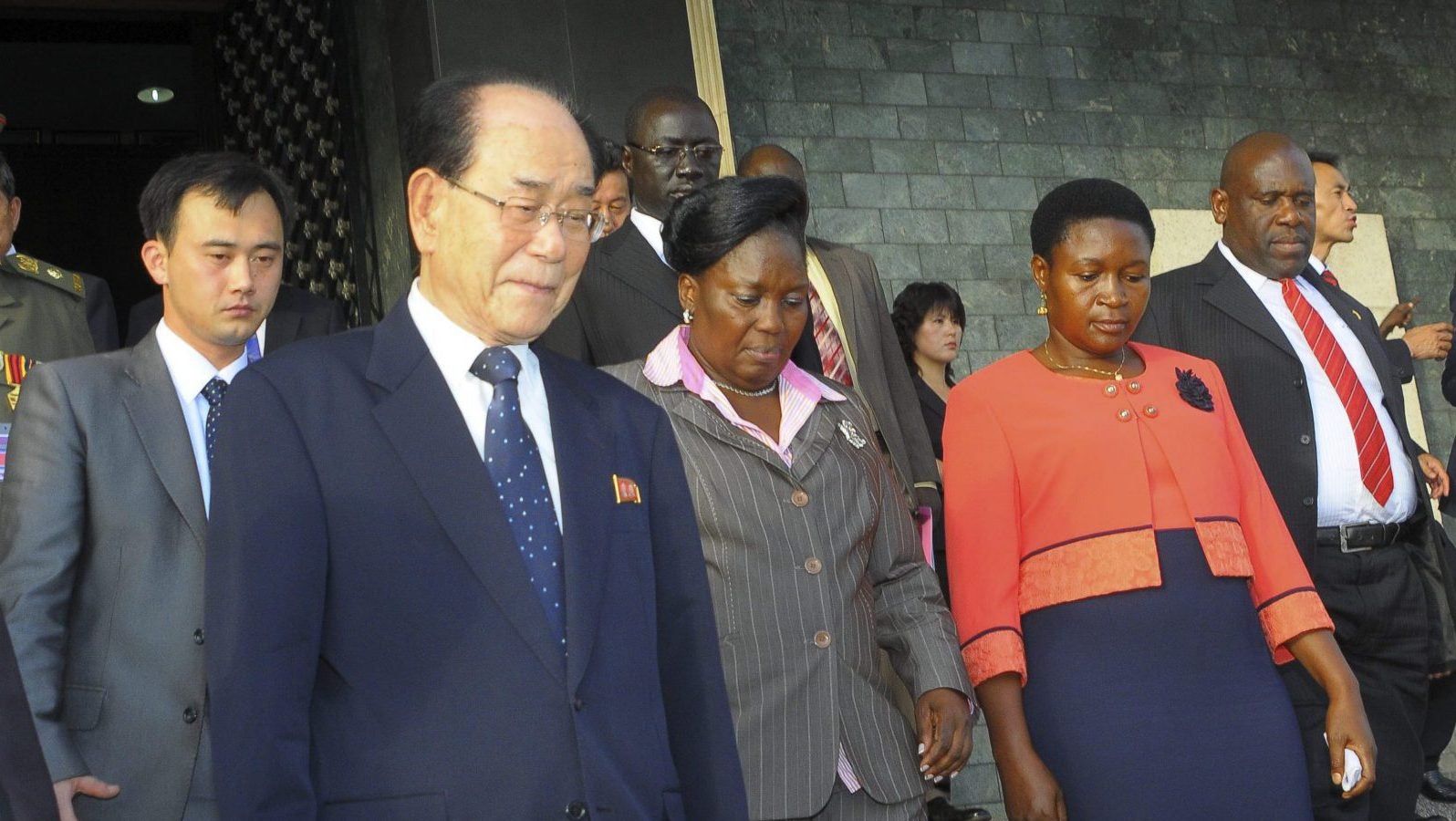Eleven African countries will be probed by the UN over their military ties with North Korea
The United Nations (UN) will probe North Korea’s military cooperation with 11 African countries, according to a report published by an eight-member panel of experts on Sept. 9.


The United Nations (UN) will probe North Korea’s military cooperation with 11 African countries, according to a report published by an eight-member panel of experts on Sept. 9.
The report claims North Korea sidestepped international sanctions to provide military and security assistance to Tanzania, Uganda, Angola, the Democratic Republic of Congo, Eritrea, Mozambique, Namibia, Benin, Botswana, Mali, and Zimbabwe.
Using private companies and embassies as a front, the communist state was able to sell arms and offer security and military training to these African nations. The US has now called for tighter sanctions to be imposed on North Korea, which is facing mounting criticism over its nuclear weapons program and human rights practices.
Over the last few years, North Korea has looked to Africa for allies as it becomes more isolated from the world. In June 2015, Angola was found to be in possession of North Korean marine engines and military boats. At a summit in Kampala in May 2016, South Korean officials at the event announced that Uganda pledged to stop military dealings with North Korea after a UN report revealed the pariah state was offering security training to the Ugandan police force.
The most recent UN report also revealed how a North Korean company fixed and improved surface-to-air missile systems in Tanzania. Speaking to the Tanzanian publication, The Citizen, foreign affairs minister Dr Suzan Kolimba, claimed not to have know about the report or the upgrades to surface-to-air missile systems.
The relationship between North Korea and Africa dates back to the Cold War where the country was looking to find allies among newly liberated, socialist countries in Africa. Like China and Russia, it was looking to stamp out western influence on the continent, and present its adversary, South Korea, as a puppet of the US. And while China’s relationship with Africa is now mainly concerned with trade and development, North Korea is determined to find military and diplomatic support on the continent.
This strategy has worked fairly well in Uganda. President Yoweri Museveni has proven to share North Korea’s disdain for western foreign policy and influence. Museveni, whose party members recently proposed to extend the age limit for heads of state, has hosted a banquet for North Korean diplomats in Uganda and defended his relationship with the country, once describing them as “friends who have helped Uganda for a long time.”